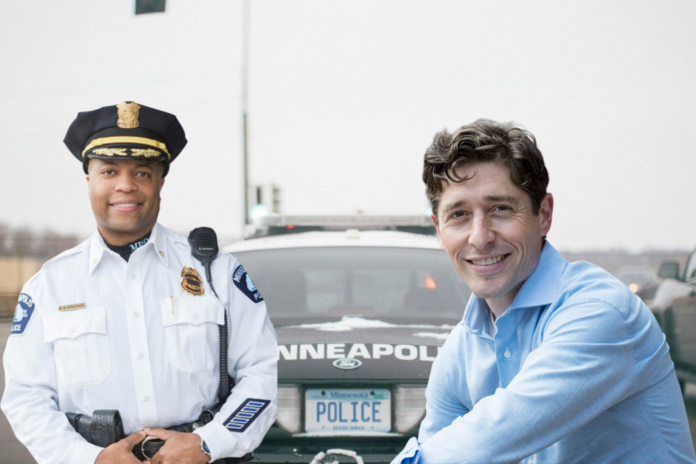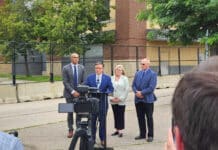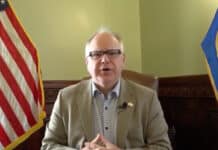
A former Minneapolis police officer said cops on the force have felt “helpless” since as early as 2015, when the city began to take away officers’ ability to enforce the law.
Steve Dykstra, a former MPD officer who now lives and works in Iowa, appeared on Fox News this week and said the city of Minneapolis has been “backpedaling” over the past six years or so, “taking tools away from police to enforce the law and keep the streets safe.”
Minneapolis Mayor Jacob Frey and the City Council have been working to take funds and resources out of the police department, changing loitering laws and limiting the ability of cops to pursue vehicles. The council is now attempting to create a new department to “supervise” the MPD.
The George Floyd incident was “a kind of build-up of years of backpedaling by the police,” Dykstra noted.
“When police don’t have any tools to use anymore, they feel pretty helpless out there,” Dykstra said. “You take away loitering laws, the ability to pursue vehicles. You don’t have to stop for the police in Minneapolis anymore, thanks to Mayor Frey and the City Council.”
The last year has seen at least 40 cops retire and 120 take leave, according to Fox News. Minneapolis Police Chief Medaria Arradondo recently said he is down about a third of his officers.
Dykstra said he left after city leadership gave up the Third Precinct to rioters last summer.
“They gave that building to them as a token, as a symbol. Mayor Frey basically stoked the flames and encouraged the crowds to become upset and violent,” Dykstra said. Frey supported a “soft-handed” approach from the MPD, which made Dykstra lose all confidence in city leadership.
Like many others, Dykstra left because he refused to be a “stand-down” cop, he said. He wasn’t allowed to do his job in the manner he believed he should: “bold, courageous, and actually proactive.”
“Cops get frustrated. What you see is chaos, violence, and reoccurring crime.”
He pointed out that victims of crime are impacted the most by cuts to the police department, and those victims are often minorities. Black Lives Matter advocates have a “double standard,” because victims of crime need protection, too, and police are there to protect them.
“Which lives matter? Just the ones that are affected by police brutality in rare instances, or is it all of those lives, including victims of crime?” Dykstra said.
“I loved my job in Minneapolis,” Dykstra added. “Unfortunately, I wasn’t allowed to do it in a manner I believed I should do it, which means bold, courageous, actually proactive.”















